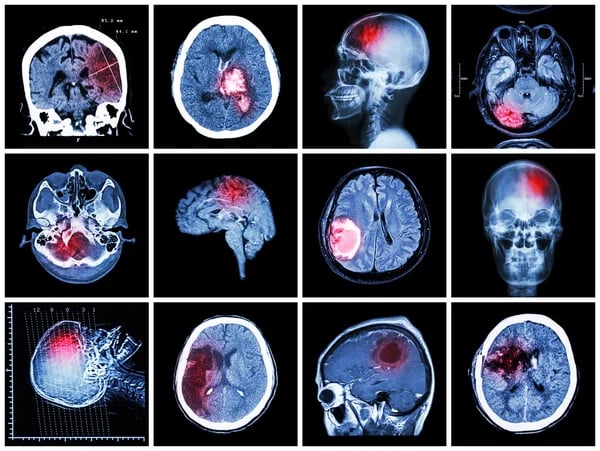Understanding Brain Tumors: Causes, Symptoms, and Treatment
Learn about brain tumors: their causes, symptoms, and treatment options. Discover crucial insights to understand, diagnose, and manage brain tumors effectively.


Introduction
A brain tumor refers to an abnormal growth of cells within the brain or its surrounding tissues. It can be either benign (non-cancerous) or malignant (cancerous). Brain tumors are considered dangerous due to their potential to disrupt normal brain functions and cause severe health complications. In this article, we will explore the causes, symptoms, and treatment options for brain tumors.
Causes of Brain Tumors
The exact cause of brain tumors is often unknown. However, certain risk factors have been identified, including:
Genetic conditions or family history
Exposure to ionizing radiation
Previous history of brain tumor
Age (brain tumors are more common in older adults)
Gender (men are slightly more prone to brain tumors than women)
It's important to note that most people with these risk factors do not develop brain tumors, and many individuals without any risk factors can still be affected.
Symptoms of Brain Tumors
The symptoms of a brain tumor vary depending on its size, location, and rate of growth. Common symptoms may include:
Headaches that worsen over time
Seizures or convulsions
Changes in vision or hearing
Difficulty speaking or understanding speech
Loss of balance or coordination
Memory problems
Mood or personality changes
If you experience any persistent or worsening symptoms, it is crucial to consult a healthcare professional for proper evaluation and diagnosis.
Treatment Options
The treatment for brain tumors depends on various factors, such as the type, size, and location of the tumor, as well as the overall health of the patient. The primary treatment options include:
Surgery: The surgical removal of the tumor is often the first line of treatment, whenever feasible.
Radiation therapy: High-energy beams are used to target and destroy cancer cells.
Chemotherapy: Medications are administered to kill cancer cells or slow down their growth.
Targeted drug therapy: Drugs are used to specifically target certain abnormalities in cancer cells.
Immunotherapy: This approach helps the immune system recognize and attack cancer cells.
In some cases, a combination of these treatment modalities may be recommended to achieve the best possible outcome.
Conclusion
Brain tumors can be dangerous due to their potential to disrupt normal brain functions and cause serious health complications. While the exact causes of brain tumors are often unknown, certain risk factors have been identified. Recognizing the symptoms and seeking timely medical attention is crucial for early diagnosis and effective treatment. Treatment options for brain tumors may include surgery, radiation therapy, chemotherapy, targeted drug therapy, and immunotherapy. Each treatment plan is tailored to the individual patient's specific condition. If you or a loved one experience persistent symptoms, consult a healthcare professional for a proper evaluation and guidance.
